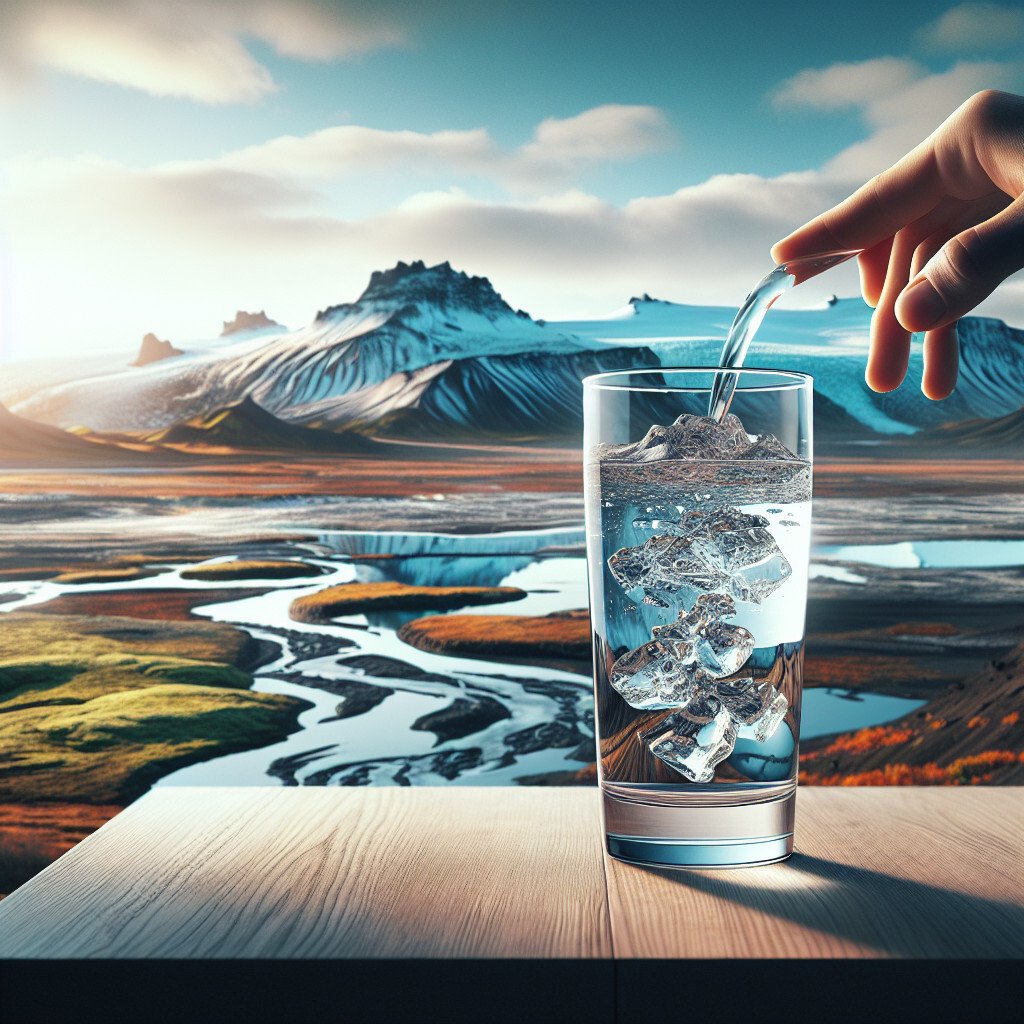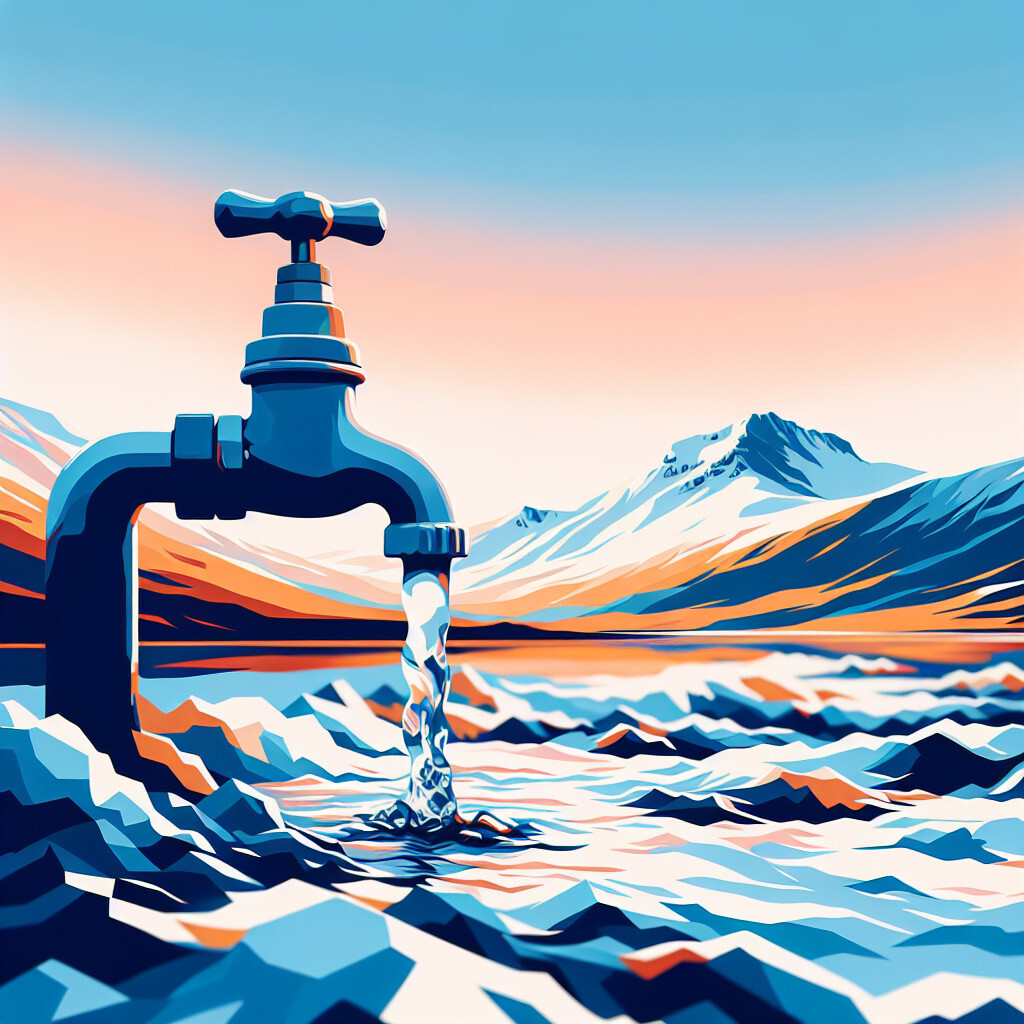-
Table of Contents
“Iceland’s Tap Water: Pure, Clean, and Straight from Nature’s Spring.”
Introduction

The tap water in Iceland is renowned for its exceptional purity and quality. It is sourced from natural springs and requires no treatment or added chemicals, making it one of the cleanest and most sustainable in the world. The cold tap water is particularly noted for its crisp, refreshing taste. However, the hot tap water, heated by geothermal energy, may have a slight sulfur smell due to the geothermal origins, but is still safe to drink.
Understanding the Purity of Iceland’s Tap Water
Iceland, a Nordic island nation, is renowned for its dramatic landscapes, which include volcanoes, geysers, hot springs, and lava fields. However, one of its most remarkable features is often overlooked: the exceptional purity of its tap water. The tap water in Iceland is not only safe to drink but is also considered among the purest and most delicious in the world.
The source of Iceland’s tap water is its abundant natural resources. The country is home to vast glaciers and frequent rainfall, which contribute to a plentiful supply of fresh water. This water is naturally filtered through layers of porous volcanic rock, a process that removes impurities and endows the water with a clean, crisp taste. Unlike in many other countries, where tap water is treated with chemicals like chlorine to kill bacteria and other microorganisms, Iceland’s tap water is chemical-free. This is because the country’s cold climate inhibits bacterial growth, eliminating the need for chemical treatment.
However, the purity of Iceland’s tap water is not just a matter of taste. It also has significant health benefits. The water is rich in essential minerals like calcium and magnesium, which are beneficial for bone health and cardiovascular function. Moreover, because the water is untreated, it is free from potentially harmful chemical byproducts that can result from the disinfection process.
Despite these advantages, visitors to Iceland are sometimes taken aback by the tap water’s distinctive sulfur smell. This odor is most noticeable when the water is hot and is due to the presence of geothermal sources in the country’s water supply. While the smell can be off-putting, it is not indicative of poor water quality. On the contrary, sulfur is a natural mineral that has been linked to health benefits, including improved joint health and enhanced immune function.
In addition to its health benefits, the purity of Iceland’s tap water also has environmental implications. The country’s reliance on natural filtration methods reduces the need for energy-intensive water treatment processes, contributing to lower carbon emissions. Furthermore, the availability of high-quality tap water reduces the demand for bottled water, which in turn decreases plastic waste.
Despite the exceptional quality of Iceland’s tap water, it is important to note that not all tap water in the country is safe to drink. In some remote areas, the water may come from shallow wells and may not be adequately filtered. Therefore, it is always advisable to ask locals or consult reliable sources before drinking tap water in unfamiliar areas.
In conclusion, the tap water in Iceland is a testament to the country’s pristine natural environment and sustainable practices. It is a product of the country’s unique geology and climate, which allow for natural filtration and eliminate the need for chemical treatment. While the water’s sulfur smell may be surprising to some, it is a natural characteristic that does not compromise the water’s quality or health benefits. As such, when visiting Iceland, one can not only enjoy the country’s breathtaking landscapes but also savor the taste of some of the purest tap water in the world.
The Role of Glaciers in Iceland’s Clean Tap Water
Iceland, a Nordic island nation, is renowned for its stunning landscapes, which include geysers, hot springs, lava fields, and most notably, glaciers. These glaciers play a significant role in providing the country with some of the cleanest tap water in the world. The quality of tap water in Iceland is exceptional, and it is directly linked to the country’s unique geographical features and natural resources.
The glaciers of Iceland, which cover approximately 11% of the country’s land area, are a significant source of fresh water. The water from these glaciers is naturally filtered through layers of volcanic rock, which removes impurities and contributes to its exceptional purity. This process, known as glacial meltwater filtration, is a natural phenomenon that results in water so clean that it surpasses the quality of most bottled waters.
The glacial meltwater eventually makes its way into the country’s reservoirs and aquifers, which serve as the primary sources of tap water for the Icelandic population. The water is then distributed to households and businesses across the country, without the need for additional treatment or purification. This is a testament to the effectiveness of the natural filtration process, and it is a key factor in the high quality of Iceland’s tap water.
In addition to being naturally filtered, the tap water in Iceland is also free from chlorine and other chemicals commonly used in water treatment processes. This is because the country’s water sources are so pure that they do not require chemical treatment to meet safety standards. As a result, the tap water in Iceland not only tastes better than in many other countries, but it is also healthier, as it is free from potentially harmful chemical additives.
The role of glaciers in providing clean tap water in Iceland is not only a matter of practical importance but also of environmental significance. The country’s reliance on glacial meltwater for its water supply is a sustainable practice that minimizes the impact on the environment. Unlike other methods of water extraction and treatment, the use of glacial meltwater does not deplete the water table or contribute to pollution.
However, the sustainability of this practice is threatened by the effects of climate change. Rising global temperatures are causing Iceland’s glaciers to melt at an unprecedented rate, which could potentially disrupt the country’s water supply in the future. This underscores the importance of global efforts to combat climate change, not only for the sake of Iceland’s glaciers and water supply but also for the preservation of similar ecosystems around the world.
In conclusion, the tap water in Iceland is of exceptional quality, thanks largely to the country’s glaciers. These natural wonders serve as a source of fresh water that is naturally filtered and free from chemical additives. However, the future of this natural resource is uncertain due to the effects of climate change. As such, it is crucial that we continue to prioritize environmental sustainability and climate change mitigation in order to preserve these invaluable resources for future generations.
Health Benefits of Drinking Tap Water in Iceland
Iceland, a Nordic island nation, is renowned for its stunning landscapes, geothermal hot springs, and, perhaps surprisingly, its tap water. The tap water in Iceland is not only safe to drink but is also considered among the best in the world. This is due to the country’s unique geology and stringent regulations that ensure the water’s purity. The health benefits of drinking tap water in Iceland are numerous, making it a vital part of the Icelandic lifestyle.
The tap water in Iceland originates from abundant natural sources. It is primarily sourced from the country’s vast glaciers and underground springs, which are continually replenished by rainfall and snowmelt. This water undergoes natural filtration as it seeps through layers of volcanic rock, a process that removes impurities and endows the water with essential minerals. The result is pure, clean water that is free from pollutants and harmful microorganisms.
One of the key health benefits of drinking tap water in Iceland is its mineral content. The water is rich in minerals such as calcium and magnesium, which are essential for bone health and cardiovascular function. These minerals are naturally dissolved in the water as it filters through the volcanic rock, providing a readily absorbable source of these vital nutrients. Moreover, the water’s mineral content contributes to its refreshing taste, which many visitors to Iceland remark upon.
Another significant health benefit of Icelandic tap water is its lack of chlorine. In many countries, chlorine is added to tap water to kill bacteria and other pathogens. While this makes the water safe to drink, it can also give it an unpleasant taste and smell. Furthermore, some research suggests that long-term consumption of chlorinated water may have adverse health effects. In contrast, Icelandic tap water is naturally free from pathogens due to its source and filtration process, eliminating the need for chlorination.
The purity of Icelandic tap water also means it is free from pollutants such as heavy metals, pesticides, and pharmaceutical residues. These contaminants are often found in tap water in other parts of the world, even in developed countries, and can have harmful effects on health. In Iceland, strict regulations and regular testing ensure that the tap water remains free from these pollutants, providing a safe and healthy source of hydration.
The health benefits of drinking tap water in Iceland extend beyond physical health. The knowledge that the water is pure, clean, and sustainably sourced can also contribute to mental wellbeing. In a world where access to clean water is a significant issue, the ability to drink directly from the tap without concern for safety or quality is a privilege that Icelanders do not take for granted.
In conclusion, the tap water in Iceland offers numerous health benefits due to its purity, mineral content, and lack of pollutants. It is a testament to the country’s unique geology and commitment to environmental sustainability. Whether you’re an Icelander enjoying a glass of water at home or a visitor marveling at the water’s refreshing taste, the benefits of drinking tap water in Iceland are clear. It is a simple yet profound way to nourish your body and respect the environment.
Environmental Impact of Iceland’s Tap Water Extraction Process
Iceland, a Nordic island nation, is renowned for its stunning landscapes, geothermal hot springs, and, perhaps surprisingly, its tap water. The country’s tap water is not only safe to drink but is also considered among the cleanest and purest in the world. This is largely due to the unique environmental conditions and processes involved in its extraction, which have minimal impact on the environment.
Iceland’s tap water originates from abundant natural sources, primarily glaciers and underground reservoirs. The water from these sources is naturally filtered through layers of volcanic rock, a process that removes impurities and endows the water with a fresh, clean taste. This natural filtration process eliminates the need for chemical treatment, which is commonly used in many other countries to purify tap water. As a result, the extraction and distribution of tap water in Iceland do not involve the release of harmful chemicals into the environment.
The extraction process itself is also environmentally friendly. The water is pumped directly from the natural sources to the distribution system, without the need for energy-intensive treatment plants. This direct extraction method significantly reduces the carbon footprint associated with the provision of tap water. Moreover, the abundant availability of water sources in Iceland ensures that the extraction process does not deplete the water reserves or disrupt the natural water cycle.
The distribution of tap water in Iceland is equally sustainable. The country’s extensive geothermal energy resources are used to heat the water for domestic use. This use of renewable energy further reduces the environmental impact of the tap water system. Furthermore, the distribution infrastructure is designed to minimize water loss, with advanced leak detection systems in place to promptly identify and repair any leaks.
However, it is important to note that while the environmental impact of Iceland’s tap water extraction process is minimal, it is not entirely without consequences. The infrastructure required for the extraction and distribution of water can disrupt local ecosystems, particularly in sensitive areas such as glaciers. Additionally, the energy used in the pumping and distribution processes, although primarily sourced from renewable resources, still contributes to Iceland’s overall energy consumption.
Despite these potential impacts, the Icelandic government and water authorities are committed to maintaining the sustainability of the tap water system. They continually monitor the environmental effects of water extraction and distribution, and implement measures to mitigate any negative impacts. These measures include the careful planning of infrastructure to minimize disruption to ecosystems, and the ongoing improvement of energy efficiency in the water system.
In conclusion, the tap water in Iceland is not only of exceptional quality but is also produced and distributed with minimal environmental impact. The natural filtration process, direct extraction method, and use of renewable energy all contribute to the sustainability of the system. While there are some environmental consequences associated with the infrastructure and energy use, these are actively managed and mitigated through careful planning and continual improvement. Therefore, when you drink tap water in Iceland, you can be assured that you are not only enjoying some of the purest water in the world but are also contributing to a sustainable and environmentally responsible system.
Q&A
1. Question: Is the tap water in Iceland safe to drink?
Answer: Yes, the tap water in Iceland is safe to drink and is considered some of the cleanest in the world.
2. Question: Does the tap water in Iceland have a particular taste?
Answer: The tap water in Iceland may have a slight sulfur smell due to the geothermal origins, but it doesn’t affect the taste and is completely safe to drink.
3. Question: Is it necessary to buy bottled water in Iceland?
Answer: No, it is not necessary to buy bottled water in Iceland as the tap water is of high quality and safe to drink.
4. Question: How is the tap water in Iceland sourced?
Answer: The tap water in Iceland is sourced from natural springs and geothermal wells, making it pure and rich in minerals.
Conclusion
The tap water in Iceland is of exceptional quality. It is pure, clean, and safe to drink, sourced directly from natural springs and requiring no treatment or added chemicals. The sulfur smell from hot water is due to geothermal origins but is harmless. Overall, Iceland’s tap water is among the best and healthiest in the world.






